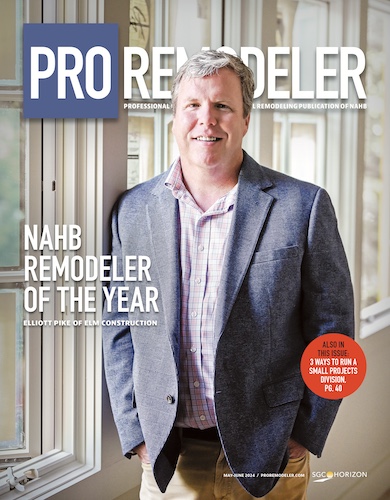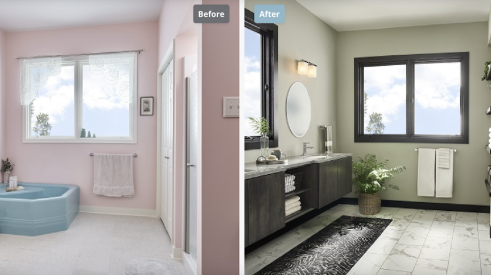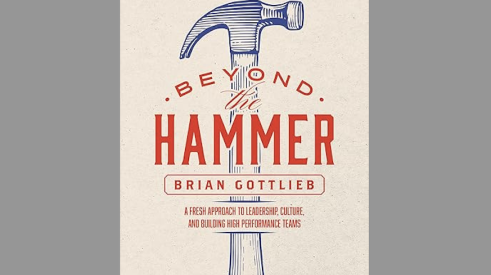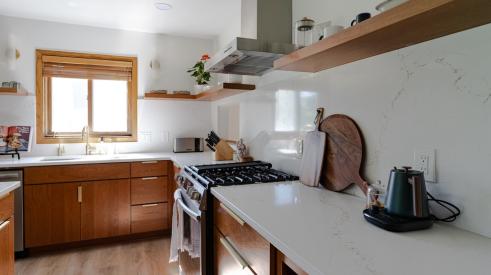You’ve smiled, explained, demonstrated, created context, shown concern. No emotional stone in the sales process has been left unturned. Your prospect says he or she understands the problem, understands the solution, and now you, the salesperson, tell him, her, or them what the price will be for your company to do the work. Be ready for this response: “That’s just too much.”
Where to Go With Nowhere to Go
That answer can throw the new-to-sales salesperson because it almost seems, for a second, that there’s nowhere to go but out the door. “Little can compete for sheer discombobulation with the plain old, ‘We think your prices are too high,’” writes Charles Green on his blog, TrustedAdvisor. “What do you say to that?”
The idea that the price is too high is an objection that’s as old as humanity itself, says Mike Brooks, on his blog. “If you think hard enough,” Brooks says, “I’m sure you can see the ancient Egyptians walking around an outdoor marketplace haggling with sellers using this very objection.” Price, notes Colleen Francis, is “the single most common objection encountered by salespeople in every industry … [and] it can also be one of the most difficult objections for many sales professionals to overcome.”
What’s there to say if the prospect tells you to your face that your price is out of line?—implying, at best, a lack of understanding of their needs in relation to their pocketbook, and, at worst, an effort to take advantage of their lack of familiarity with the construction process, home improvement, building products, installation practices, etc.
Pry It Apart
Actually, veteran salespeople relish this objection because what seems like a statement bringing the conversation to a triumphant close—No with a small ‘n’—is really an opportunity to move it onto solid ground and make it real. To savvy salespeople, Your Price Is Too High is not an end, it’s the beginning.
But you must first understand, Brooks says, that there are several possible motives behind this statement, among them:
1) The prospect may be genuinely surprised;
2) The prospect may want to bargain with you over the price of the project, and the objection is their opening gambit; and
3) The prospect may already have gotten a low-ball quote, so your price feels like an unexpected smack in the face.
In any case, if you don’t walk away and instead ask for further information, you’ll soon find out.
Sales experts point out that there are many ways to approach the objection and turn it around. One clear implication in the objection is that the client doesn’t think what you’ve presented is worth the price you’ve attached to it. That could mean you haven’t done a convincing job up to this point of explaining what you’ll do and why it’s worth the price you just stated. What Francis and others suggest is that you just stop right there, at that critical moment in the conversation. “‘Too high’ is a very subjective comment,” she writes. “So before you start making any counter-offers, take a deep breath, relax and don't say anything for a good three seconds. Just pause, look at your customer and gather your thoughts.”
Then ask: Why do you say that?
Other experts suggest variations of this question, such as: Why do you feel the price is too high? Or: Other than price, what would hold you back from going forward with the project?
Now allow the prospect ample room to explain.
What you want to know is the context of Too High. “Is it ‘too high’ compared to a competitor?” writes Geoffrey James in Inc. Is it ‘too high’ to fit into a budget? Is it ‘too high’ relative to the perceived economic benefit of having the product?”
Here’s where that other, far lower, price from a low-ball competitor may finally surface, so that you can ask to actually see that competitor’s proposal and quickly identify its deficiencies and explain why it would be not so much a bargain as a bad bargain.
In that long moment that follows the prospect stating the objection and you asking why the homeowner believes that to be the case, you may find the prospect volunteering some other reason, such as that he or she has a limited budget.
Without asking why it’s Too High, you’ll have no way of identifying the true objection. Asking why may very well immediately reveal it.
The Fatal Mistake
Too High is not only subjective, it’s ambiguous, and it may not even be honest—as in the case of the prospect who makes that statement as a way to bargain down the price of your proposal. In Forbes, Brad Shorr calls the default to price drop a “fatal mistake.”
What flustered salespeople may do is to automatically begin calculating just How High the Too High Is, and offer a 5 percent or 10 percent or some other discount, in which case you’ve shot yourself twice: by undercutting your own profit margin if you end up with the job, and by conceding that the price in your proposal was less than a fair one to begin with.
On the other hand, if this is an objection you rarely encounter, that may not be such a good thing either. As Janna Hagan points out, “If you never have clients tell you that you’re too expensive, you’re probably not charging enough.”
Add new comment
Related Stories
3 Areas Successful Remodelers Focus On
Industry advisor Mark Richardson shares what separates the losing from the winning in today’s market
Peppermill Finish
NAHB: Remodelers Face Challenges and Opportunities
Remodelers face a uniquely strong market yet remain challenged by codes and costs
Selling Your Company to Your Team
From company valuation to terms of the transfer, here’s a look at how three different remodelers made the deal work
Re-Bath Expands its Reach with New Franchise
The company signs a deal with brothers who are first-time franchisees
Pro Remodeler’s 2024 Pinnacle Experience Reaches New Heights
The sold-out event covered leadership, lead gen, sales, and technology
Brian Gottlieb Receives Remodeling Mastery Award
Presented by industry icon, Mark Richardson, the award celebrated Gottlieb’s extraordinary impact on remodeling
What's Beyond the Hammer?
Working with Brian Gottlieb on the book Beyond the Hammer provided a masterclass on how to build an aligned team
5 Counterintuitive Strategies to Improve Your Business
Follow these strategies to inspire employees, instill trust, and beat the competition
Couple Act As Much More Than General Contractors
How LBR Partners uplifts and educates their Spanish-speaking trade partners













